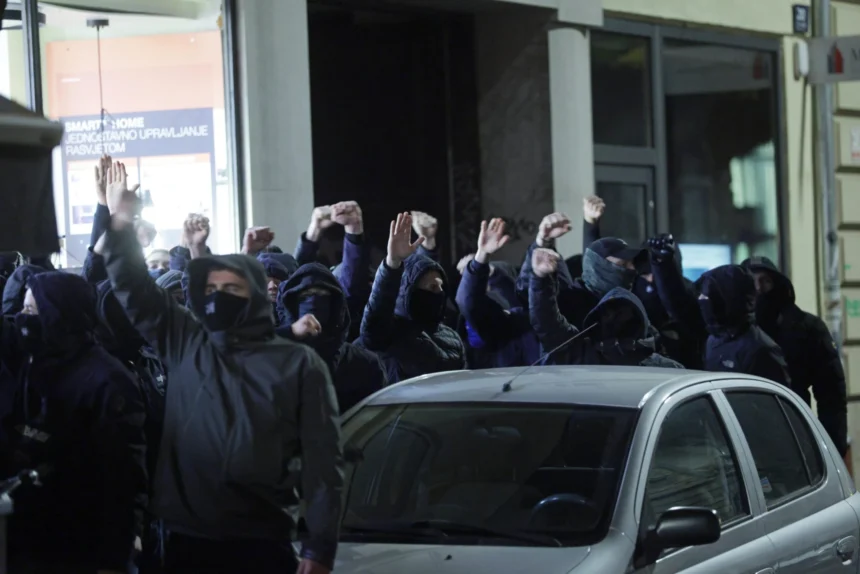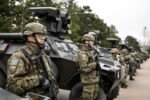Srbophobic incidents in Croatia are more frequent today than at any time since the 1990s—yet official Belgrade remains conspicuously silent. Whether because of recent reprimands from Brussels, or because the situation conveniently serves the ruling regime in Serbia, the quiet is striking.
Had someone told Franjo Tuđman that, by the end of 2025, the HDZ would again rule Croatia and that anti-Serb nationalism would regain strength, he would likely have been pleased. Had someone told Slobodan Milošević that Serbia could once again face international isolation reminiscent of the 1990s—and that Aleksandar Vučić would be the one leading the country—he would have been confused.
What would probably reassure him, however, is the fact that the nationalist rhetoric of the 1990s has not disappeared. Instead, it has been refined, intensified, and stripped of any sense of responsibility, particularly by the current Serbian government.
Two Capitals, One Old Game
As during the Yugoslav era and up to the Erdut Agreement, Belgrade and Zagreb remain the main engines of nationalism in the Western Balkans. Their political distance is far greater than the 390 kilometers separating them physically.
Sociologist Jovo Bakić explains:
“In both Serbia and Croatia, there is hostility toward other communities—especially Serbs in Croatia—which ruling parties can manipulate for short-term political gain. HDZ and SNS are sister parties within the EPP framework. It is no coincidence HDZ insisted SNS remain affiliated. And when the line is crossed, the hatred unleashed cannot be put back in the bottle.”
Thompson’s Concert and the Atmosphere of Hostility
The Zagreb concert of Marko Perković Thompson, attended by some half a million people, demonstrated how normalized nationalist symbols have become. While Zagreb authorities have since banned Ustaša slogans at public events, the willingness—and ability—of Prime Minister Andrej Plenković to enforce that ban remains doubtful.
Meanwhile, the Serbian government finds these regional tensions politically useful. As Bakić notes, both regimes benefit when nationalist outbursts in the neighboring country appear, because they “set each other up for a political smash or volley.”
Escalating Incidents in Croatia
A series of incidents—including disrupted festivals, attacks on cultural events, canceled exhibitions, and physical threats to Serbian athletes—reveals a trend.
The Croatian Interior Ministry reports 75 hate crimes in 2024, many likely under-classified.
Historian Hrvoje Klasić observed that public reactions quickly shifted from criticism to justification and even support. Victims became “provocateurs”; protection of Serbian cultural events became controversial.
Death Threats Against Pupovac—and Belgrade’s Silence
When death threats were issued against Milorad Pupovac, both Plenković and President Zoran Milanović condemned them. Yet Aleksandar Vučić remained largely silent—a silence that again benefited his regime.
Instead of defending the safety of Serbs in Croatia, Vučić shifted the narrative onto himself, using the moment to imply that he personally is under attack. This tactic—equating Serbia, Serbs, and Vučić himself—is a cornerstone of his political method.
He even failed to remind the public of his earlier diplomatic confrontation over Jasenovac—a missed opportunity he likely avoided due to pressure from Brussels, which has recently scolded Belgrade for escalating tensions.
To date, no Serbian official has condemned the threats against Pupovac.
Two Nationalisms—Two Different States
Croatia’s nationalism is the nationalism of a completed state, one that achieved its strategic goals and is protected by EU and NATO membership. In this context, anti-Serb sentiment is often reframed as anti-Yugoslav or pro-sovereignty.
Serbia’s nationalism, by contrast, is the nationalism of a territorially contested state, whose strategic goals are subordinated to the interests of the ruling elite. The regime fuels fears of traitors, separatists, and foreign agents—an intentional strategy to maintain power.
While Croatia constitutionally prohibits new Balkan unifications, Serbia’s 2006 preamble still insists Kosovo is part of its territory.
Why Vučić Needs Nationalism More Than Plenković
Plenković can settle for performative condemnation. Vučić, however, relies on nationalism as a permanent political oxygen supply. Neither extreme-right ministers nor cross-border nationalist figures can fill that role indefinitely.
As Professor Bakić warns:
“International circumstances prevent war in the Balkans, but hatred always finds a way to harm ordinary people. And when in trouble, the ruling elites in Serbia and Croatia help each other by escalating old conflicts—because nationalism distracts from corruption and domestic failures.”







